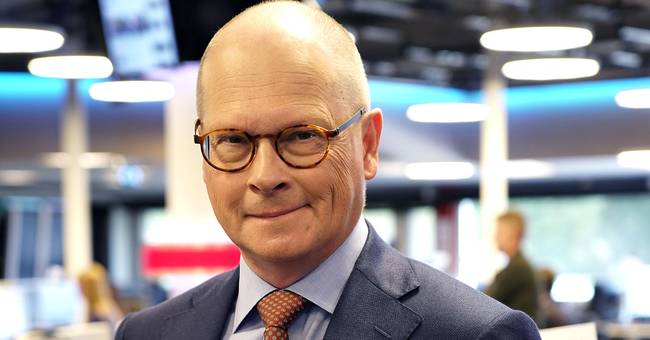The bumblebee has been used before in political parables.
With a heavy body and thin wings, it may not be able to fly - but it does in any case.
Former Prime Minister Göran Persson used to liken the Swedish model to a bumblebee.
Despite high taxes and a large public sector, it delivered growth, contrary to what many liberal economists used to claim.
A book of the same name, Humlan som flyger, has also been published about Stefan Löfven.
The title is appropriate.
He was the outsider who entered the political scene when the other candidates declined.
He was not the nomination committee's first choice, and despite the fact that he lacked experience of top-level politics, never sat in the Riksdag or was a minister, he has for seven years managed to remain prime minister in a very difficult parliamentary position.
In addition, he has survived more political crises than any other Swedish prime minister in modern times.
Intrusive squeak
His first budget was voted down in the Riksdag already in the autumn of 2014, but threats of new elections forced the December agreement, and Löfven was able to continue ruling.
The refugee crisis was about to split the government with the Green Party.
The January agreement, after the 2018 election, triggered harsh internal criticism and for the first time, the Social Democrats began talking about finding a replacement for Löfven.
Then came the corona pandemic and changed everything.
Löfven could continue to rule.
In the end, however, the squeak became so intrusive in his sprawling government base that the Left Party did something in common with the Sweden Democrats to remove the Prime Minister.
As first prime minister, Löfven lost a no-confidence vote in the Riksdag.
Although he returned as Prime Minister, he was disillusioned with his chances of running for office.
In August, he left the surprising news that he would resign at the party congress that is now beginning.
The legacy left
The question is what legacy he leaves behind.
Here the answers will vary.
He cracked the alliance and bourgeois cooperation, a dream come true for a Social Democratic party leader.
But at the same time, he negotiated away important parts of the Social Democrats' policy to secure government power.
For Stefan Löfven, it has been about the will to break up bourgeois cooperation.
Historically, it has posed the greatest threat to social democratic power.
After the 2018 election, the bourgeois alliance collapsed and the Center Party chose as late as last summer to release Löfven as prime minister.
But at the same time, the Social Democrats have lost support among LO members.
In the 2014 election, the Social Democrats received support from 53 percent of LO members.
Four years later only by 41 percent.
During the same period, the Sweden Democrats increased their support among LO members from 17 to 24 percent.
Survival artist
The critics also learn to highlight the development of crime in Sweden.
In recent years, shootings have in practice taken place daily in Sweden, which creates great insecurity.
There are still no signs that the police and authorities have control over the situation.
Most murders remain unsolved.
In retrospect, Löfven is seen as the political survival artist, the pragmatist who was prepared to compromise on most things in order to stay.
And who managed to then resign on his own initiative.
However, he will not be remembered as a great politician of ideas.
On the contrary, Löfven has seldom shown any greater interest in ideological discussions.

